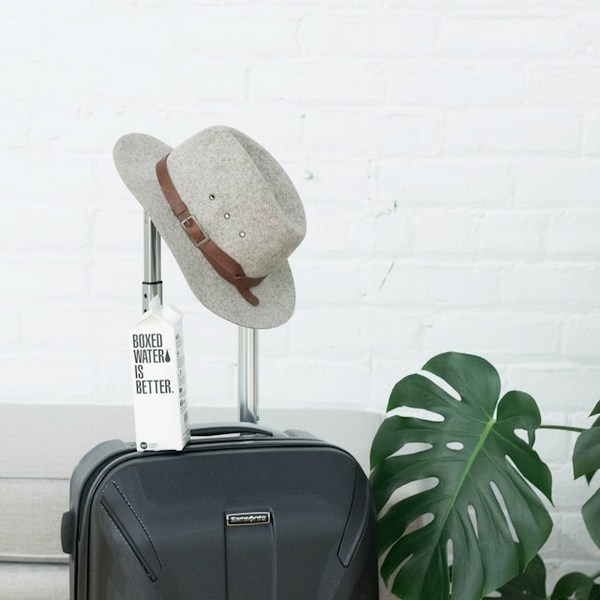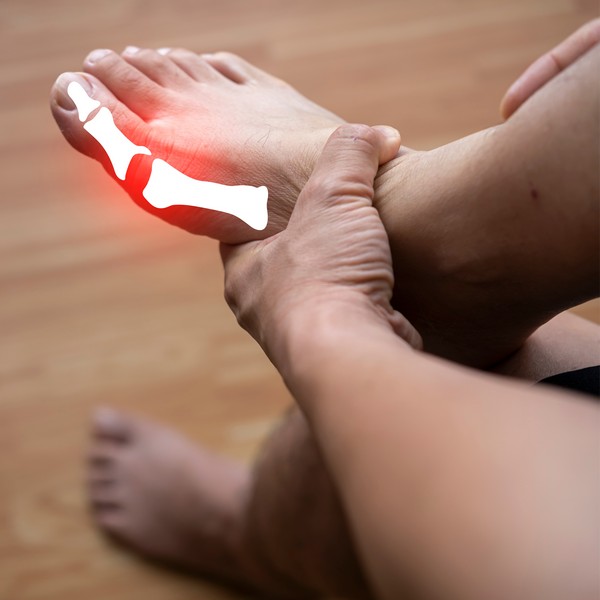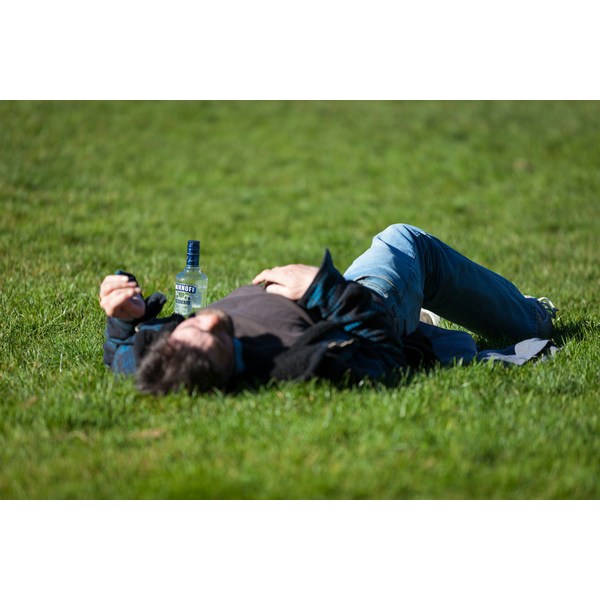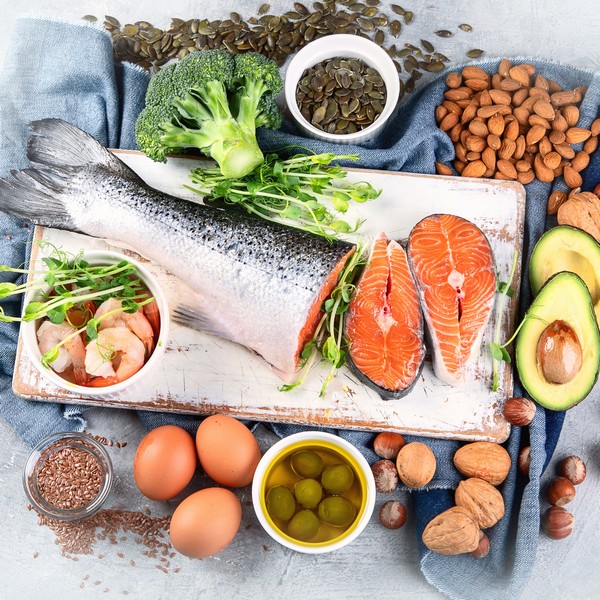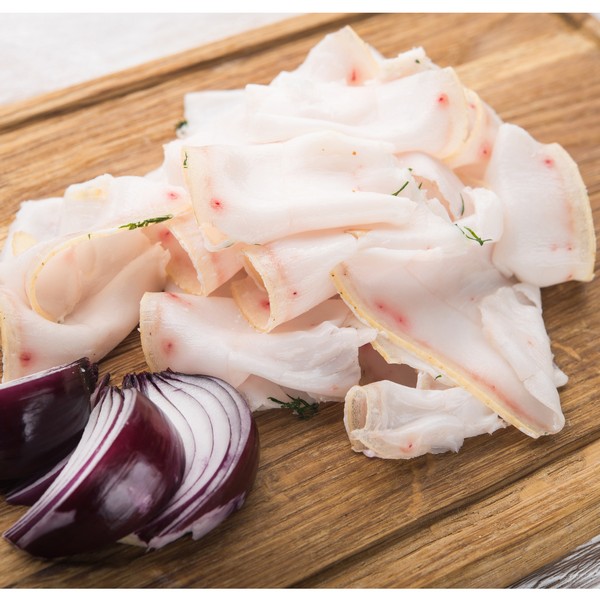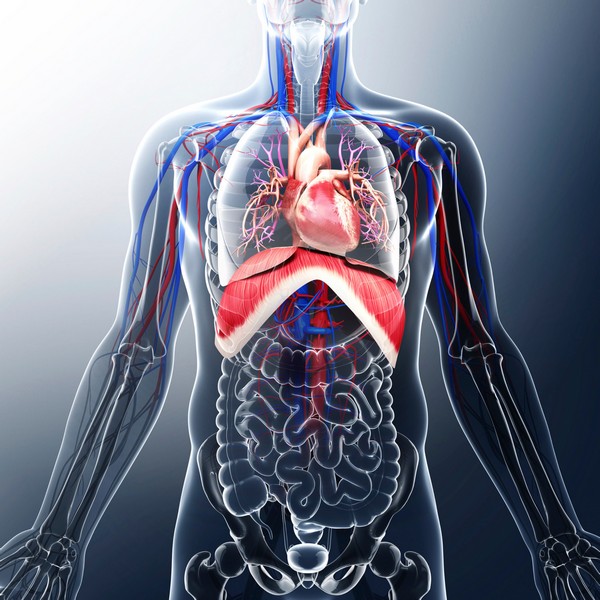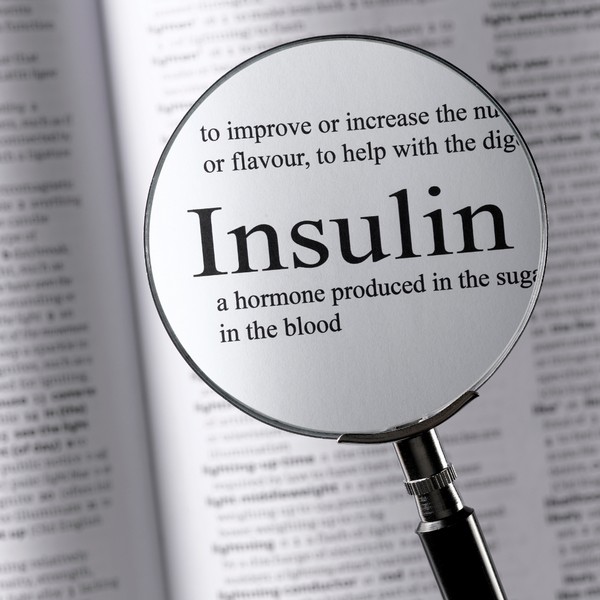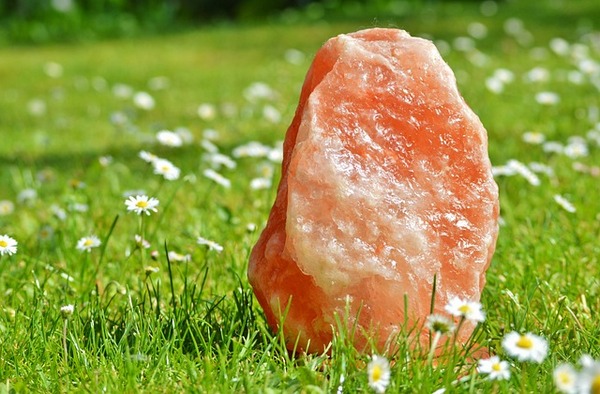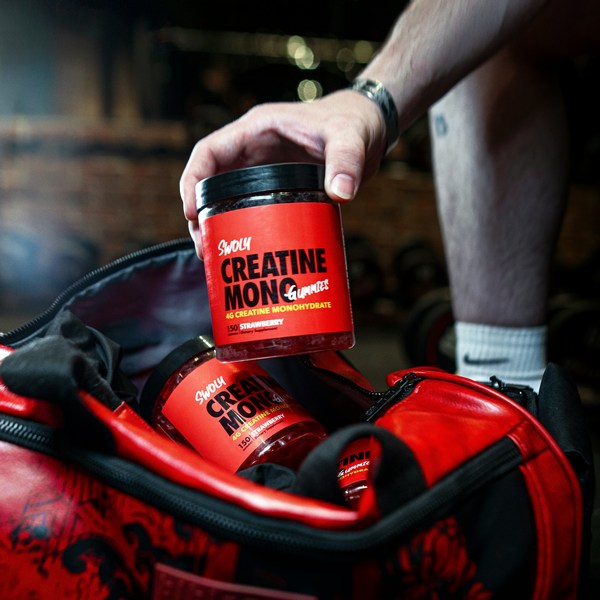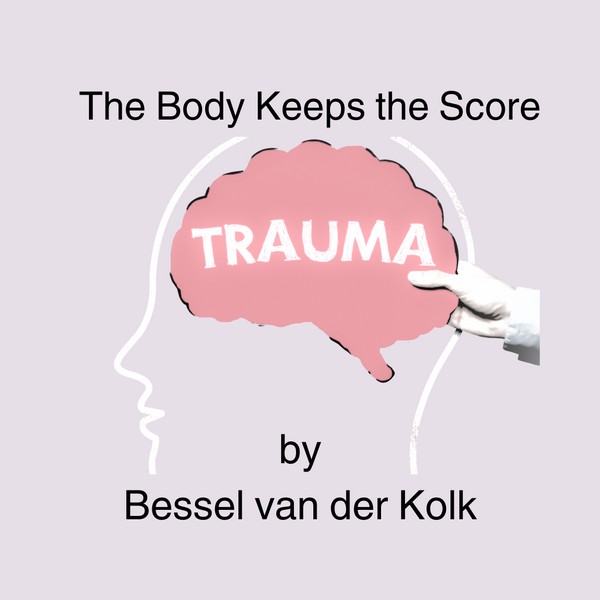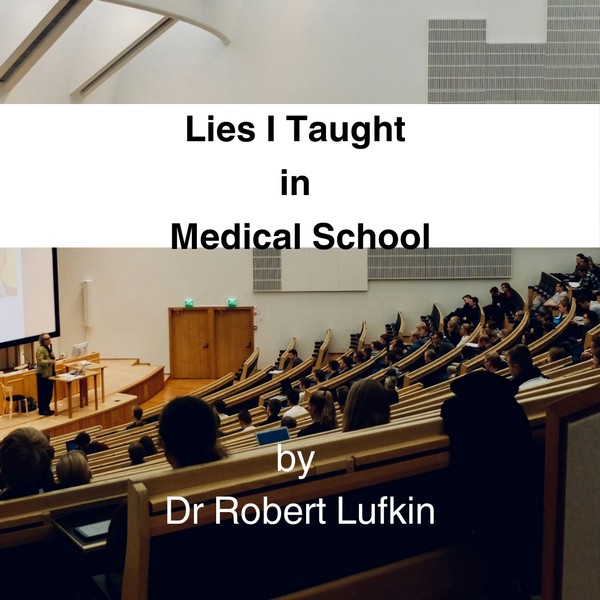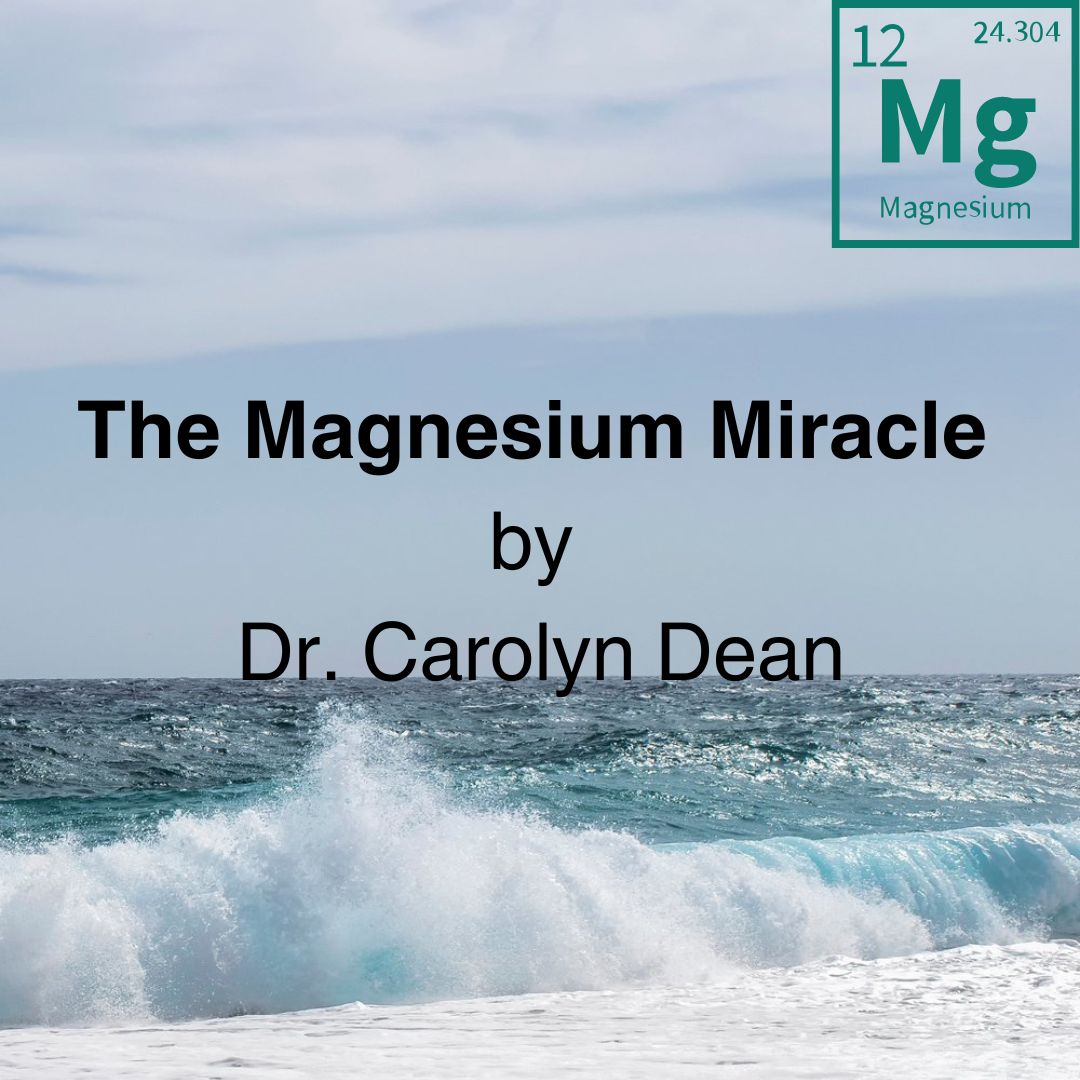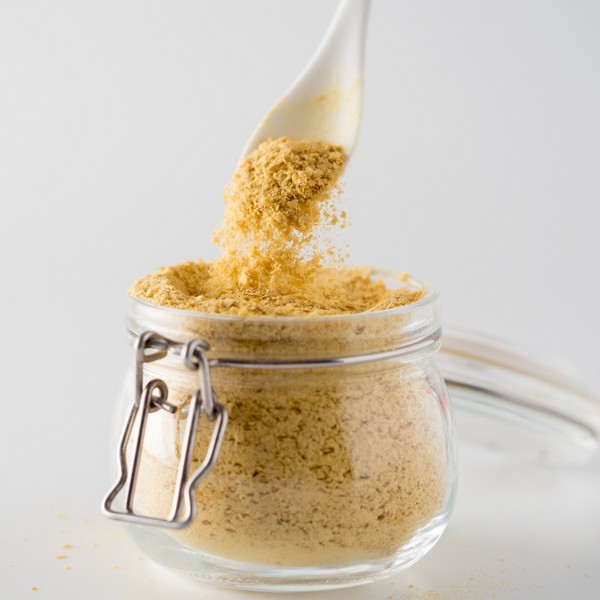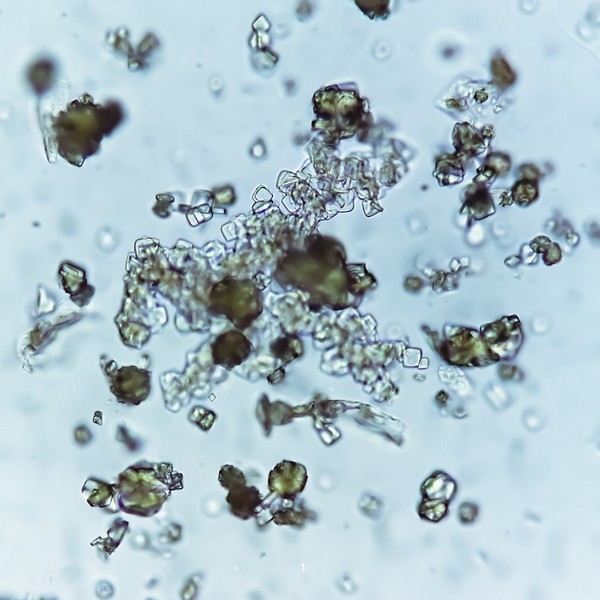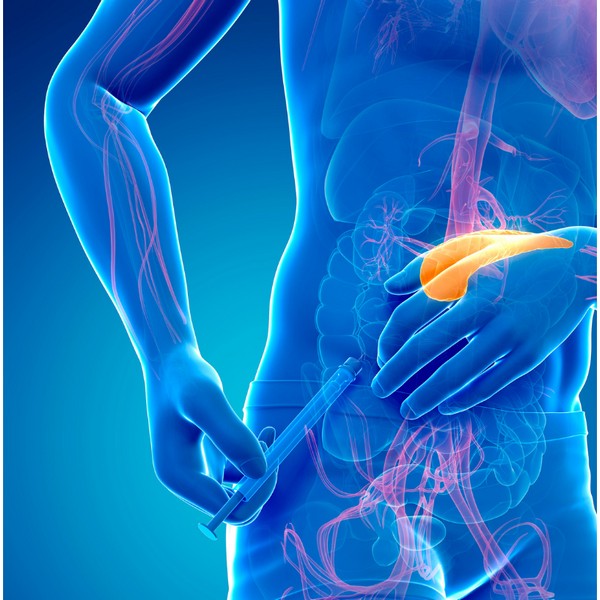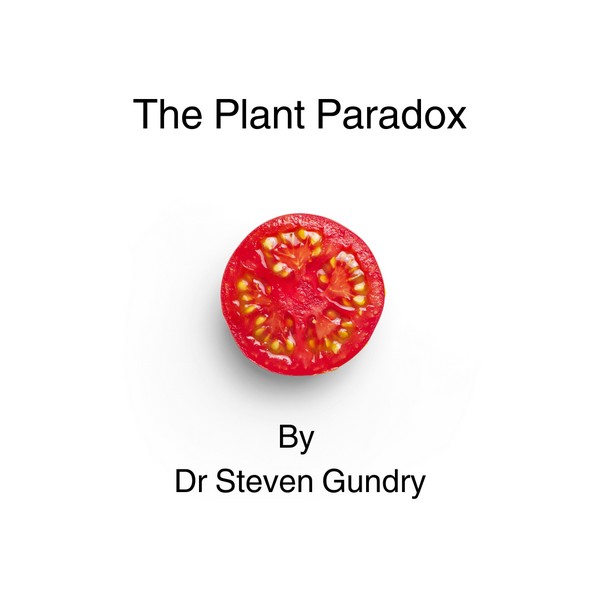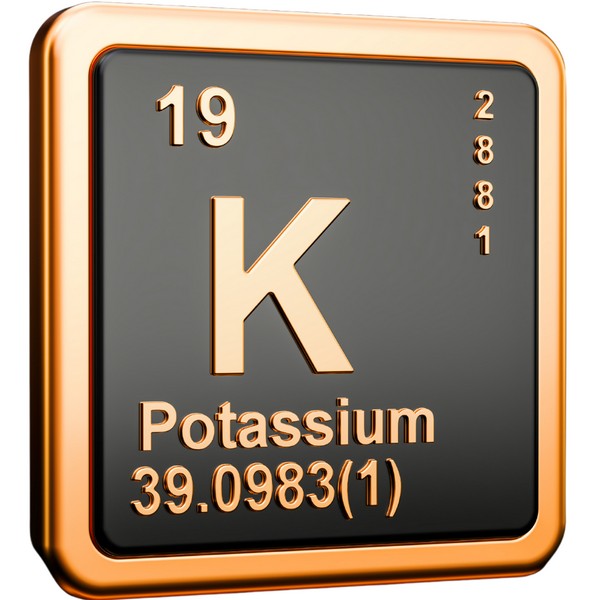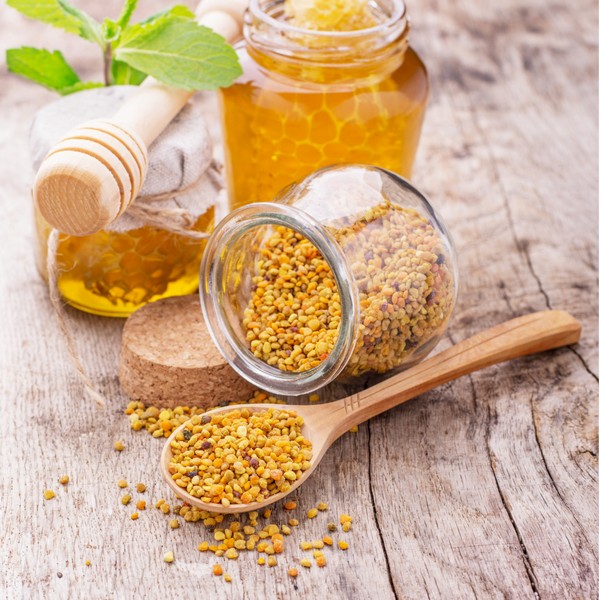Key Highlights
- Stay hydrated, eat well, and stay active during travel.
- Ensure restful sleep, practice stress reduction, and keep up with personal hygiene for well-being.
- Keep fitness goals in check and find opportunities to exercise while traveling.
- Visit local parks and use hotel gyms or apps to exercise.
- Try local healthy foods and pack nutritious snacks for energy.
- Practice yoga or meditate, and take time for journaling to stay mindful and relaxed.
Table of Contents
With warm weather and more relaxed work schedules, summer is the perfect time to embark on a travel adventure.
Whether you’re going on a beach vacation, camping in the woods, or exploring new cities and countries, traveling offers a chance to break free from your normal routine and experience new sights and cultures.
While travel can be exciting and rejuvenating, it’s wise to maintain your healthy habits even while on the go.
1. Prioritize Staying Hydrated
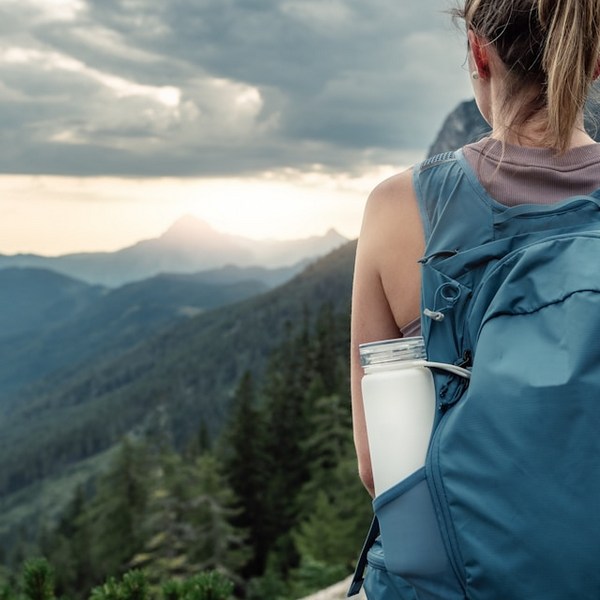
To ensure you stay hydrated during your travels, make it a priority to drink plenty of water throughout the day.
Carry a reusable water bottle with you and refill it whenever you have the opportunity. If you’re traveling by plane, drink water before, during, and after your flight to combat the dehydrating effects of the cabin air.
Additionally, limit your intake of dehydrating beverages like alcohol and caffeine. Staying hydrated is not only important for your overall well-being but also for supporting your immune system and digestive system.
Drinking enough water helps to flush toxins from your body, improve digestion, and keep your immune system strong. So, be sure to prioritize staying hydrated during your travels to feel your best and maintain optimal health.
2. Opt for Nutritious Food Choices
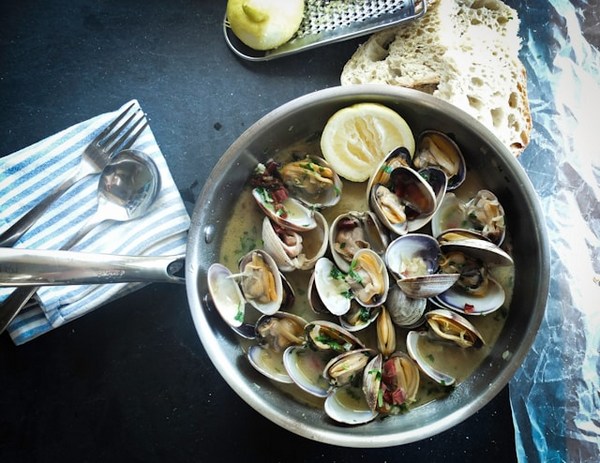
When dining out, look for restaurants that offer healthy options or focus on local cuisines that incorporate healthy fats and proteins.
Aim to include a variety of colors on your plate, as this indicates a range of nutrients. Opt for grilled or steamed dishes instead of fried foods, and choose whole foods over ultra-processed.
If you’re staying in accommodations with kitchen facilities, consider cooking some of your meals using fresh ingredients. This allows you to have more control over what goes into your meals and ensures that you’re making nutritious choices.
3. Incorporate Physical Activity into Your Itinerary

Look for opportunities to engage in physical activities that you enjoy, such as walking tours, hiking, or trying out local fitness activities.
- Explore the city on foot or rent a bike to get around.
- Take the stairs instead of the elevator whenever possible.
- Engage in water sports or go for a swim if you’re near a beach or a pool.
If you prefer structured exercise, consider packing lightweight equipment like resistance bands or a jump rope to create your own workout routine. Many fitness apps offer bodyweight exercises that you can do anywhere, anytime.
4. Ensure Adequate Rest and Sleep

Make it a point to allocate sufficient time for rest and aim for at least 7-9 hours of sleep each night. Create a sleep-friendly environment by ensuring that your accommodation is quiet, dark, and cool.
Use earplugs, eye masks, or white noise machines if necessary.
Establish a bedtime routine to signal to your body that it’s time to wind down and prepare for sleep. Avoid caffeine and electronic devices close to bedtime, as they can interfere with sleep quality.
If you struggle with jet lag, try gradually adjusting your sleep schedule a few days before your trip to minimize its effects.
5. Practice Mindfulness and Stress-Reduction Techniques

Take time each day to engage in mindfulness activities such as deep breathing, meditation, or yoga. These practices can help you stay grounded and centered, reduce stress, and improve your overall mood.
In addition to mindfulness, incorporate other stress-reduction techniques into your travel routine. This could include going for a leisurely stroll, sitting in a park and observing nature, or engaging in activities that bring you joy and relaxation.
Remember to be kind to yourself and take breaks when needed. Traveling can be hectic, so giving yourself permission rest and recharge is crucial for maintaining your mental health.
6. Maintain Personal Hygiene and Health Safety

Here are some essential steps to maintain personal hygiene and health safety while on the go:
- Wash your hands frequently with soap and water for at least 20 seconds. If soap and water are not available, use hand sanitizer with at least 60% alcohol.
- Avoid touching your face, especially your eyes, nose, and mouth, to prevent the spread of germs.
- Cover your mouth and nose with a tissue or your elbow when coughing or sneezing. Dispose of used tissues properly and wash your hands afterward.
- Carry disinfecting wipes and use them to clean frequently-touched surfaces such as doorknobs, handles, and countertops.
- Practice social distancing by maintaining a distance of at least 6 feet from others, especially in crowded places.
- Follow local health guidelines and regulations, including wearing a mask in public places if required.
7. Stay Connected with Your Fitness Goals
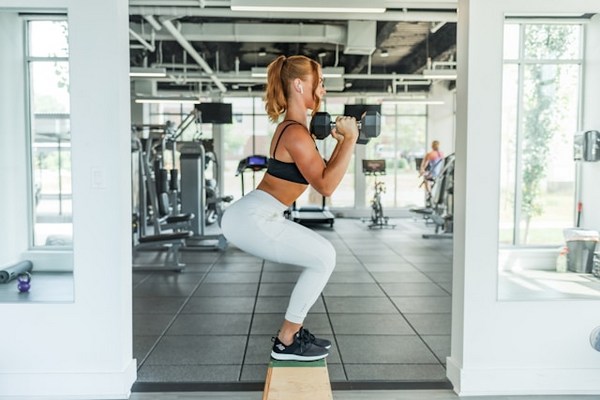
First, set realistic and achievable fitness goals for your trip. This could include maintaining your current exercise routine, trying new activities, or incorporating short workouts into your daily schedule.
If you have access to a gym or fitness facilities, take advantage of them and continue your workout routine. If not, there are plenty of exercises you can do using only your body weight, such as push-ups, squats, lunges, and planks.
Resistance bands are also a convenient and portable option for strength training.
Additionally, many fitness apps offer workout routines and guided exercises that you can follow from anywhere, anytime. These apps can help you stay motivated and on track with your fitness goals.
Conclusion
Maintaining healthy habits while traveling is helpful for ensuring your well-being on the go. From staying hydrated to making nutritious food choices, physical activity, and practicing mindfulness, can help you stay energized and balanced during your travels. You can enjoy your journey to the fullest by prioritizing self-care and health safety. Remember to explore local parks, try healthy cuisines, and find time for relaxation amidst your adventures. Embracing a holistic approach to wellness while traveling will not only enhance your experience but also contribute to your overall health goals. Stay active, eat well, and take care of yourself wherever your travels may lead you.
Frequently Asked Questions
1. Why is it important to maintain healthy habits while traveling?
Maintaining healthy habits while traveling is crucial to ensure you have the energy and vitality to enjoy your trip. It helps prevent travel-related illnesses, manage stress, and maintain overall well-being.
2. What are some healthy eating tips for travelers?
- Stay hydrated by drinking plenty of water.
- Choose restaurants that offer healthy menu options.
- Pack nutritious snacks like nuts, fruits, and protein bars.
3. How can I stay active during my travels?
- Incorporate physical activities like walking tours or hiking.
- Utilize hotel gyms or local fitness centers.
- Practice simple exercises or yoga in your room.
4. What are some ways to manage stress while traveling?
- Plan your itinerary to include relaxation time.
- Ensure you get adequate sleep and rest.
- Practice mindfulness or meditation techniques.
5. How can I ensure I get enough sleep while traveling?
- Stick to a regular sleep schedule.
- Bring items that aid sleep, like earplugs or a sleep mask.
- Create a calming bedtime routine, even when away from home.
6. What should I pack to maintain my healthy habits?
- Reusable water bottle
- Healthy snacks
- Comfortable walking shoes
- Portable fitness equipment (like resistance bands)
7. How can I maintain good hygiene while on the go?
- Carry hand sanitizer and disinfecting wipes.
- Wash your hands frequently.
- Avoid touching your face, especially in crowded places.
8. Are there any apps or tools that can help me stay healthy while traveling?
- Fitness apps with workout routines
- Meditation and mindfulness apps
- Apps to find healthy restaurants and local fitness centers
9. How do I deal with jet lag and time zone changes?
- Gradually adjust your sleep schedule before you leave.
- Stay hydrated and avoid caffeine or alcohol close to bedtime.
- Spend time outside during daylight hours to help reset your internal clock.
10. What are some tips for maintaining mental health while traveling?
- Stay connected with loved ones through calls or messages.
- Keep a travel journal to process and reflect on your experiences.
- Take breaks and allow yourself downtime to relax and recharge.
Research
Ahn, Y.J. and Janke, M.C., 2011. Motivations and benefits of the travel experiences of older adults. Educational Gerontology, 37(8), pp.653-673.
https://doi.org/10.1080/03601271003716010
Chen, C.C. and Petrick, J.F., 2013. Health and wellness benefits of travel experiences: A literature review. Journal of Travel Research, 52(6), pp.709-719.
http://dx.doi.org/10.1177/0047287513496477
Chen, C.C. and Petrick, J.F., 2016. The roles of perceived travel benefits, importance, and constraints in predicting travel behavior. Journal of Travel Research, 55(4), pp.509-522.
https://doi.org/10.1177/0047287514563986
Durko, A.M. and Petrick, J.F., 2013. Family and relationship benefits of travel experiences: A literature review. Journal of Travel Research, 52(6), pp.720-730.
http://dx.doi.org/10.1177/0047287513496478
Moal–Ulvoas, G. and Taylor, V.A., 2014. The spiritual benefits of travel for senior tourists. Journal of Consumer Behaviour, 13(6), pp.453-462.
http://dx.doi.org/10.1002/cb.1495
Petrick, J.F. and Huether, D., 2013. Is travel better than chocolate and wine? The benefits of travel: A special series. Journal of Travel Research, 52(6), pp.705-708.
Stone, M.J. and Petrick, J.F., 2013. The educational benefits of travel experiences: A literature review. Journal of Travel Research, 52(6), pp.731-744.
Walsh, S.M. and Flaherty, G.T., 2021. Health risks and benefits of international travel for adult patients with asthma. International Journal of Travel Medicine and Global Health, 9(4), pp.149-154.
World Health Organization, 2007. International travel and health: situation as on 1 january 2007. World Health Organization.
Sustainable Eco-Tourism: Why It Matters
Key Highlights Promotes conservation and eco-friendly travel to preserve natural habitats. Creates jobs and supports local economies. Preserves indigenous cultures…
Explore the Hidden Health Benefits of Traveling
Key Highlights Traveling reduces stress and improves mental well-being. It enhances creativity by exposing you to new experiences. Traveling improves…
Minimalist Travel: Less Baggage, More Memories
Key Takeaways Learn to pack only essential items for any trip, keeping your luggage light. Enjoy the benefits of minimalist…
Travel Hygiene Tips: Stay Fresh on the Go
Key Highlights Key practices include frequent handwashing, showering, and oral care. Packing a portable hygiene kit can help you stay…
11 Electrifying Health Benefits of Trace Minerals
What are Trace Minerals?The Major Roles of Trace MineralsSources of Trace MineralsDeficiencies in Trace MineralsThe Impact of…
Gout: Symptoms & Natural Treatment
Key Takeaways Gout results from the accumulation of uric acid crystals in the joints, causing severe pain…
Alcohol and Its Effects
Key Takeaways Alcohol is metabolized primarily in the liver, producing acetaldehyde, a toxic byproduct. Chronic alcohol consumption…
6 Best Natural Ways to Manage Your Blood Sugar: A Quick & Easy Guide
1. Intermittent fasting2. Exercise3. Dietary fiber4. Sleep5. Weight loss6. SupplementationBioclinic NaturalsPGX BiotiquestSugar Shift Every time you eat…
Increase GLP-1 Agonists Naturally
7 Simple Tips for Lowering Blood Pressure Naturally
Maintaining healthy blood pressure levels is essential for overall well-being, as high blood pressure can lead to…
ALA vs. DHA & EPA Omega-3: Why Source Matters
Key Takeaways ALA (Alpha-Linolenic Acid) is found in flaxseeds, chia seeds, and walnuts, but converts poorly to…
Hydration to Hyaluronic Acid: Journey to Dewy Skin
Key Highlights Proper hydration is essential for achieving radiant and healthy skin. Hyaluronic acid is a powerful…
Tallow: Benefits, Uses, and Nutrition
Key Takeaways: Tallow is a nutrient-rich animal fat with many practical uses. It contains valuable vitamins such…
Born a Crime by Trevor Noah
Key Takeaways Trevor Noah’s biracial identity in apartheid South Africa was illegal, making his existence a crime….
Homeostasis: The Key to Optimal Health and Functioning
Key Takeaways Homeostasis helps the body stay balanced for good health. Systems adjust constantly to changes in…
Let’s Get Lost by Finn Beales
Key Takeaways Showcases breathtaking remote locations through striking photography. Finn Beales’ narrative style blends personal insights with…
Explore the Hidden Health Benefits of Traveling
Key Highlights Traveling reduces stress and improves mental well-being. It enhances creativity by exposing you to new…
How Insulin Regulates Blood Sugar
Key Takeaways Insulin helps regulate blood sugar by moving glucose into cells. Imbalances in insulin levels can…
Generations by Jean M. Twenge
Key Takeaways: Jean M. Twenge explores the unique characteristics of six American generations. Analyzes data from 39…
What You Need to Know About Salt and Your Health
Table of ContentsThe Health Benefits of Unrefined Sea SaltElectrolyte BalanceMineral ContentImproved HydrationBoosted Energy LevelsImmune SupportImproved DigestionBalanced pH…
Fluoride: Risks & Controversies
Key Takeaways Fluoride is widely used in dental products and water supplies, but its safety is debated….
Sustainable Beauty: Redefining Skincare with Eco-Friendly Practices
Key Highlights Sustainable beauty focuses on products that are good for the planet and consumer health Ingredients,…
Creatine Myths Debunked: Separating Fact from Fiction
Key Takeaways Common myths about creatine, such as it causing kidney damage, weight gain, and being a…
Why Sunlight is Essential for a Healthy Life
Key Takeaways Sunlight helps the body produce vitamin D, supporting bone health and immune function. Exposure to…
Carnivore Diet: Benefits, Risks, Food List & More
Key Takeaways The carnivore diet is a keto diet that only allows for animal-based foods, and has…
The Body Keeps the Score by Dr. Bessel van der Kolk
Key Takeaways Explores trauma’s impact on the body and mind. Advocates for integrating neuroscience with therapy. Highlights…
Mental Benefits of Learning a New Language
Key Takeaways: Enhances brain volume and memory. Improves cognitive flexibility, multitasking, and executive functions. Delays cognitive decline…
Lies I Taught in Medical School by Dr Robert Lufkin
Key Takeaways Metabolic dysfunction is a common cause of many chronic diseases. Conventional medical advice often overlooks…
The Ministry of Time by Kaliane Bradley
Key Takeaways The Ministry of Time blends time travel romance, spy thriller, and workplace comedy. Explores themes…
Ceruloplasmin: The Master Antioxidant
Key Takeaways: Ceruloplasmin is a copper-containing enzyme essential for iron metabolism and preventing oxidative stress. It helps…
The Magnesium Miracle by Dr. Carolyn Dean
Key Takeaways Discusses magnesium’s critical role in health. Links magnesium deficiency to numerous diseases. Offers guidance on…
How To Optimize Your Weight Loss Efforts
1. Get Your Beauty Sleep for Optimal Weight Loss2. Natural Solutions for Weight Loss3. Stress Relief Strategies…
Quit Sugar for 14 Days: What Happens to Your Body?
Key Takeaways: Immediate Health Benefits of Reducing Sugar: In just two weeks, enjoy enhanced energy levels, weight…
Daring Greatly by Brené Brown
Key Takeaways Power of Vulnerability: Emphasizes that vulnerability is not a weakness but a strength that fosters…
Allulose: The Best Sugar Alternative
Key Takeaways Allulose is a low-calorie sweetener found naturally in some fruits. It does not raise blood…
Diatomaceous Earth: Natural Uses & Benefits
Key Takeaways – Diatomaceous earth is a natural powder made from fossilized algae called diatoms. – It…
Medium Chain Triglycerides (MCTs): Uncovering 5 Health Benefits
This potent, natural source of energy has gained considerable attention in recent years for its impressive array…
Benefits of Nutritional Yeast
Key Takeaways Nutritional yeast is a rich source of vitamins and minerals. It supports immune function and…
Natural Treatment for Irritable Bowel Syndrome (IBS): Effective Remedies Explored
Understanding IBSSymptoms of IBSRole of Diet in IBSNatural Remedies for IBSSupplements for IBSRole of Probiotics in IBSFrequently…
Dementia: Causes, Symptoms, and Management
Key Takeaways: Dementia involves a decline in cognitive function affecting memory, thinking, and daily life. Common causes…
Berberine Has 11 More Incredible Benefits Than You Thought
Berberine is a compound found in several plants that has been used for centuries in traditional Chinese…
L-Glutamine and Gut Health: Benefits and Side Effects
Key Takeaways L-Glutamine is essential for gut health. Benefits include improved digestion and reduced inflammation. Potential side…
Can’t Hurt Me – by David Goggins
Key Takeaways Resilience: David Goggins demonstrates how overcoming adversity builds strength. Accountability Mirror: Encourages daily self-reflection for…
Gardening at Longmeadow by Monty Don
Key Takeaways Emphasizes organic, seasonal gardening techniques. Offers practical advice for different garden sizes. Rich in personal…
Uric Acid: Effects & Management
Key Takeaways Uric acid plays a central role in metabolic health and oxidative stress regulation. Elevated uric…
Allergy-Friendly Pets
Key Highlights Hypoallergenic pets are great for people with pet allergies, as they produce fewer allergens like…
Histamine: What You Should Know
Key Takeaways Histamine’s Role: Vital in immune responses, digestion, and as a neurotransmitter in the central nervous…
Insulin Resistance: What It Is & How to Manage It
Key Takeaways Insulin resistance leads to high blood sugar when cells stop responding to insulin. Often connected…
Metabolic Syndrome: Managing This Health Risk
Key Takeaways Metabolic syndrome is a cluster of conditions increasing the risk of heart disease, stroke, and…
The Plant Paradox by Dr. Steven Gundry
Key Takeaways Lectins as Toxins: Lectins can cause inflammation and various health issues, Dr. Gundry argues. Gut…
Potassium: Benefits & Sources
Key Takeaways Potassium is essential for regulating fluid balance, nerve signals, and muscle function. It supports heart…
Conjugated Linoleic Acid (CLA): Benefits & Sources
Key Takeaways CLA is a type of fatty acid found primarily in animal products like beef and…
9 Vital Travel Tips for Pregnant Women
Key Takeaways Consult Your Doctor: Always discuss travel plans with your healthcare provider to ensure safety throughout…
Vegetable Oil: Health Risks You Might Not Know
Key Takeaways: Omega-6 fats from vegetable oils cause oxidative stress and inflammation. Reducing omega-6 intake and using…
